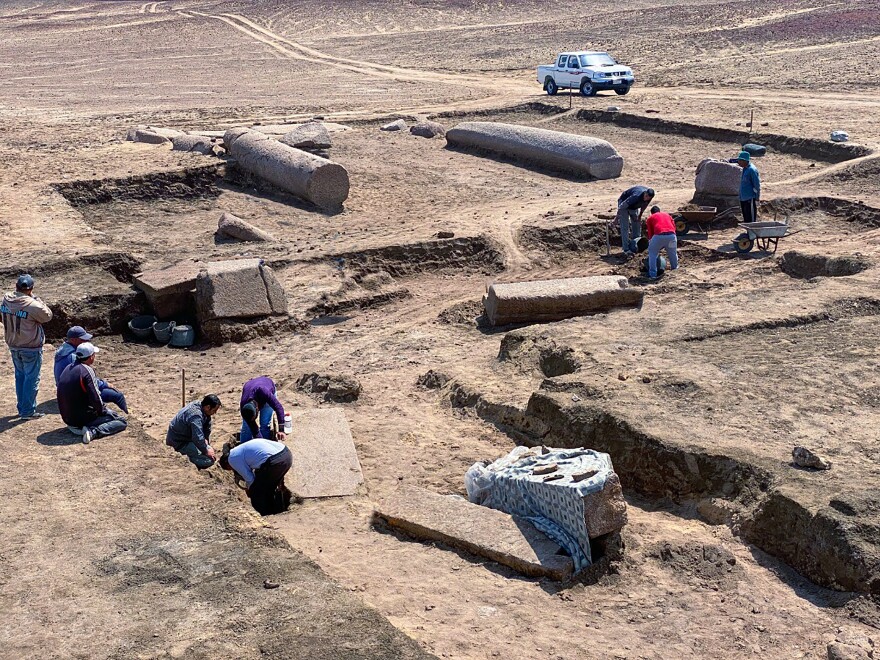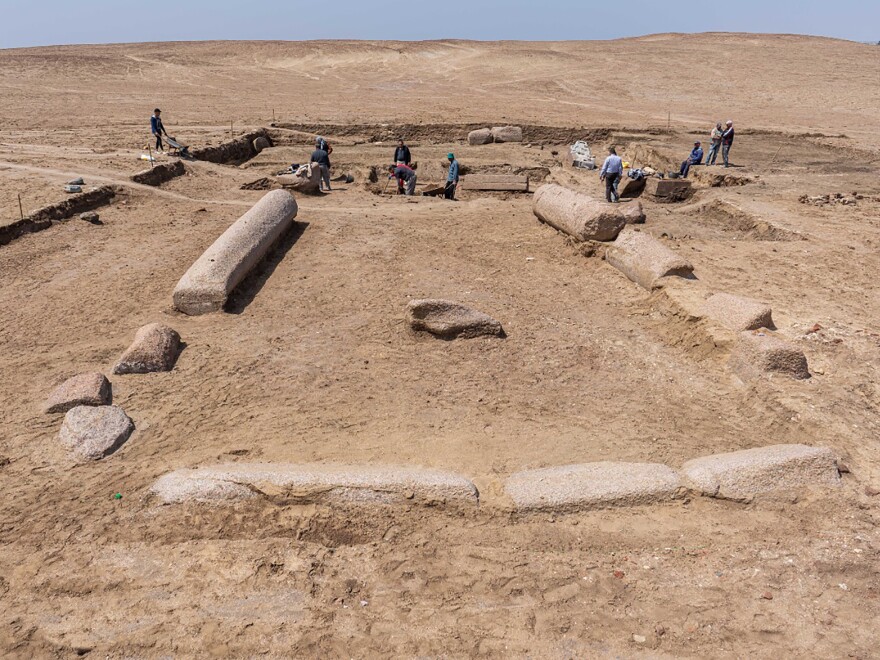CAIRO — Egyptian archaeologists unearthed the ruins of a temple for the ancient Greek god Zeus in the Sinai Peninsula, antiquities authorities said Monday.
The Tourism and Antiquities Ministry said in a statement the temple ruins were found in the Tell el-Farma archaeological site in northwestern Sinai.
Tell el-Farma, also known by its ancient name Pelusium, dates back to the late Pharaonic period and was also used during Greco-Roman and Byzantine times. There are also remains dating to the Christian and early Islamic periods.

Mostafa Waziri, secretary-general of Egypt's Supreme Council of Antiquities, said archaeologists excavated the temple ruins through its entrance gate, where two huge fallen granite columns were visible. The gate was destroyed in a powerful earthquake in ancient times, he said.
Waziri said the ruins were found between the Pelusium Fort and a memorial church at the site. Archaeologists found a set of granite blocks probably used to build a staircase for worshipers to reach the temple.
Excavations at the area date back to early 1900 when French Egyptologist Jean Clédat found ancient Greek inscriptions that showed the existence of the Zeus-Kasios temple but he didn't unearth it, according to the ministry.

Zeus-Kasios is a conflation of Zeus, the God of the sky in ancient Greek mythology, and Mount Kasios in Syria, where Zeus once worshipped.
Hisham Hussein, the director of Sinai archaeological sites, said inscriptions found in the area show that Roman Emperor Hadrian (117-138) renovated the temple.
He said experts will study the unearthed blocks and do a photogrammetry survey to help determine the architectural design of the temple.
The temple ruins are the latest in a series of ancient discoveries Egypt has touted in the past couple of years in the hope of attracting more tourists.
The tourism industry has been reeling from the political turmoil following the 2011 popular uprising that toppled longtime autocrat Hosni Mubarak. The sector was also dealt further blows by the coronavirus pandemic and most recently Russia's invasion of Ukraine.
Copyright 2022 NPR. To see more, visit https://www.npr.org.



